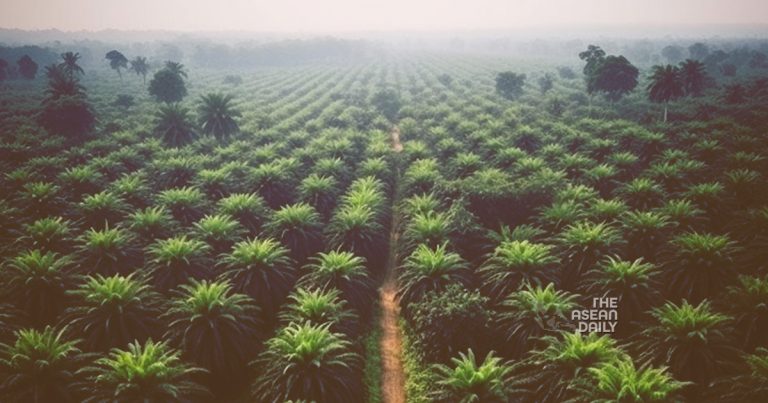31-5-2023 (KUALA LUMPUR) Malaysia and Indonesia have jointly criticized the European Union Deforestation Regulation (EUDR) following a trade mission to the European Union (EU). In a statement issued on Wednesday (May 31), both countries expressed their concerns, stating that the regulation is inherently discriminatory and punitive in nature. They warned that the EUDR would have adverse effects on international trade and hinder the palm oil industry’s progress towards the 2030 Agenda for the Sustainable Development Goals (SDGs).
Goal 12 of the SDGs emphasizes responsible consumption and production, urging parties to ensure sustainable consumption and production patterns. The joint statement emphasized the hope that the EU would adhere to the principles of transparency and non-discrimination in line with the rules and regulations of the World Trade Organization (WTO) when trading palm oil and its products.
Both Indonesia and Malaysia emphasized that the EUDR should not create trade distortions or discriminate in terms of product coverage and national treatment. They emphasized the importance of achieving new regulations through a balanced, inclusive, and non-trade restrictive approach, particularly as developing countries continue to work towards building a sustainable multilateral trading system.
The joint trade mission to the EU was carried out by Malaysian Deputy Prime Minister and Commodities Minister Fadillah Yusof and Indonesian Coordinating Minister for Economic Affairs Airlangga Hartarto. The mission aimed to convey the concerns and objections of both countries regarding the EUDR, as well as underscore the significance of commodities, specifically palm oil, to the economies and well-being of their respective nations. Mr. Fadillah stated on Facebook that they proposed holding discussions through a task force or dialogue involving producing countries, industry players, representatives of non-governmental organizations (NGOs), and smallholders. This approach would ensure clarity in establishing guidelines and avoid excluding any parties, especially smallholders.
Mr. Fadillah mentioned that during their visit to Brussels, they had five meetings with top EU leaders who expressed agreement to hold discussions. However, internal deliberations within the EU are needed to secure commitment. Members of the EU leadership will also visit Malaysia and Indonesia to engage with all stakeholders involved. Follow-up discussions will be held between EU leaders and the Malaysian and Indonesian ambassadors to further address the matters discussed and agreed upon.
The joint trade mission came after the two ministers met in Jakarta earlier this year and agreed to undertake a mission to the EU. In recent years, the EU has imposed regulations on palm oil imports, citing concerns about deforestation caused by its cultivation. This has sparked discontent from Indonesia and Malaysia, the largest palm oil producers, accounting for 56% and 31% of global production, respectively.
The EUDR mandates that companies ensure commodities sold in the EU are not sourced from deforested land. It affects seven specific commodities: palm oil, cocoa, coffee, soy, wood, rubber, and cattle, as well as products derived from these commodities. A separate statement issued earlier by Indonesia’s Secretary of the Coordinating Ministry for Economic Affairs highlighted that the EUDR undermines Indonesia’s efforts to address climate change and biodiversity protection.
According to the statement, Coordinating Minister Hartarto stated that member countries of the Council of Palm Oil Producing Countries (CPOPC) have implemented various policies to conserve forests. Indonesia has witnessed a 75% reduction in deforestation between 2019 and 2020, and the area affected by forest fires has also significantly decreased.
Hartarto emphasized the need for recognition of the national sustainability standards established by Indonesia and Malaysia through the Indonesia Sustainable Palm Oil (ISPO) and Malaysian Sustainable Palm Oil (MSPO) certifications. He called for the EUDR to accommodate palm oil products that are ISPO or MSPO certified.
The palm oil industry plays a crucial role, and Hartarto urged for positive promotion of palm oil in alignment with the efforts and commitments made so far.




